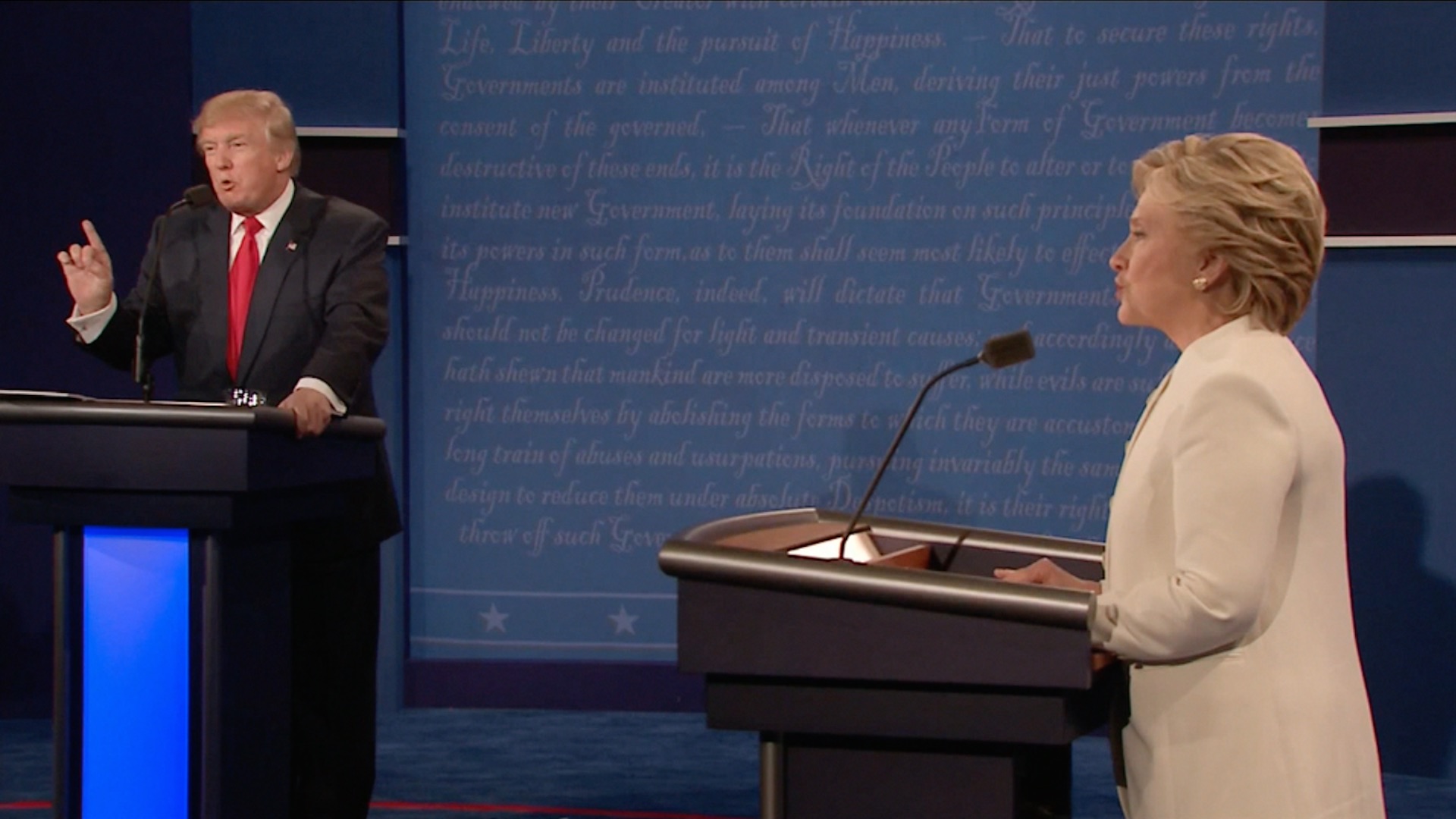To start this blog off, I’d like to begin where the Nasty Woman movement gained its wings. To understand why this term gave rise to such a impassioned fight, we must first define the term. Nasty is by all means and purposes, a gendered insult – a socially acceptable way to call a woman a b****. Nasty is reserved for women who who dare to shrug off societal norms of passiveness, daintiness, and humility. Nasty is what we call women who play a man’s game by adopting masculine behavior. But nasty is OUR word now.

“Nasty Woman” began as a result of the highly controversial 2016 presidential election. During a debate, republican nominee Donald Trump muttered the disparaging remark in reference to his opponent, Hillary Clinton. Such a fascinating sentiment, considering just an hour earlier, Trump stated that no one had more respect for women than him. But are we surprised? Respect from men in politics is never given – it is begrudgingly bestowed only upon women who serve them and adhere meticulously to their standards of what a woman should be. “Nasty” is also a appearance based insult, implying that attractiveness deems civility. Clinton is far from perfect – she has done her fair share of truly vile things. But to put her on a stage with a man who brags about grabbing women by their nether parts and have the general public then vote for him instead of her was a clear message to the female population of America: Their demeanor, their bodies, their voices, their autonomy… NONE of it will ever be protected.
But to combat this terrifying reality, women fought back. Women proclaimed that they too, were nasty. Nasty women vote. Nasty women speak up. Nasty women have no qualms in embracing their wretchedness. The movement spurred think pieces, art exhibitions, documentaries, and most importantly, started a conversation about how we treat women who pursue political careers.

Isn’t it strange how female reproductive rights are one of the hotly contested issues in American politics, but the ones who decide them are men? Isn’t it odd that the democratic party had decades upon decades to protect abortion rights more heavily but chose not to? Isn’t it horrifying that instead of electing more women to combat this discrepancy, voters choose time and time again to give these positions of power to men? These things scare me as a woman living in America. It should scare you too, no matter your gender. The issue begins with studying the history of how women are treated in government. It spans centuries back before Clinton. Monica Lewinsky, Sarah Palin, Michelle Obama, Ruth Bader Ginsburg, Eleanor Roosevelt, Susan B. Anthony… These are all names that have generated discourse on what a woman’s place in American administration should be. By learning their stories, instead of just their labels, we can become conscious to how the media unfairly treated them, and how we can, and should, do better moving forward. It is not simply a matter of equality anymore – it is an issue of finding and cementing our place in the world.


Shreya,
Amazing job with your first blog! I enjoyed learning the history of the “Nasty Woman” movement, as I had never heard of it before (usually, when I think of “Nasty”, I think of Janet Jackson). Watching the government is so indicative of society, and something I enjoy keeping track of – most recently, I watched C-Span coverage of the Speaker of the House Election. It is sad to see women who have worked extremely hard be disregarded solely because of their gender, especially on a scale so great as national politics. I look forward to reading more of your blog!
Sam
Shreya,
I had never heard of the “nasty” movement before, but you described it very well, and I feel like I understand the movement. It is beautiful how people are willing and able to take an insult thrown, spin it, and use it against the insulter. It is truly equivalent to sweet, sweet revenge. It is rather bold of someone like Trump, who most people would describe as nasty, to call a whole group of people that very word.
Shreya,
I really like how you chose to look at the untraditional connotations associated with words and phrases, in this case what it means to be “nasty.” You have really great insight about the word choice used in political situations. I always appreciate when you look at topics through a different lens and talk about how longstanding gender issues are manifested in current society. I just wanted to mention that On the Basis of Sex is a great movie about RBG and women in politics in general if you haven’t already seen it. Keep up the good work of looking at how women continue to defy and overcome barriers!
I wasn’t aware of the Nasty movement before, but I think it’s very interesting how they adopted a negative word for their own uses. Political opponents should not talk disparagingly about their opponents but should promote their own values and ideas for their route to office. It’s horrible to see insults being thrown around during a presidential debate instead of actually debating. I hope that we can move past this to a more equal future with mutual respect amongst all parties.